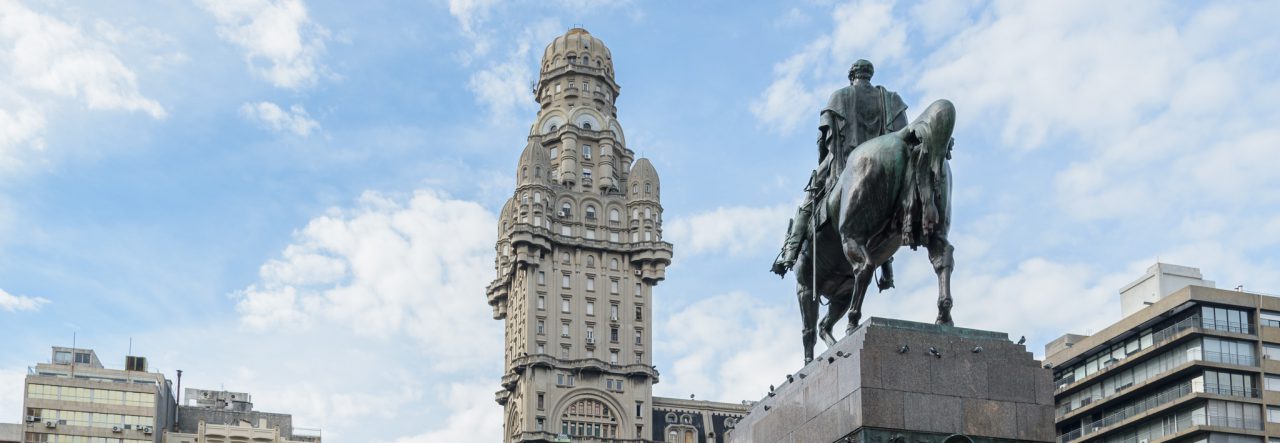
Economy and Finance Minister, Fernando Lorenzo, warned during Monday’s cabinet meeting that the international economic situation still contains the high level of “uncertainty” that his office has assumed from the start of the year and because of this they will be more “prudent” in planning the budget and which priorities to carry out next year.
Official sources told El Observador that the economy minister hinted at the idea of “maintaining” the same level of public spending as last years budget. Regardless the President will have to find a way to reassign funds to complete his 2013 priorities. Included in his agenda are health, education, reforming the state railway administration and the entry of retirees into FONASA. The president will count on a “cushion” of 140 million USD that will not be included in the budget this year.
During his presentation Lorenzo talked about that the energy cost over run that UTE (the state-owned utility company) is experiencing [because a drought is causing hydroelectric plants to under perform] and the Central Bank’s policy of maintaining liquidity to control the dollar’s impact on the fiscal deficit target of 1% projected for 2012, sources said.
Additionally, he also showed concern about the economic crisis in Europe and that protectionist trade practices will continue this year, Lorenzo included (for the first time) Argentina as “risk factor” given the possibility that the country will initiate an adverse economic cycle, government sources revealed to El Observador. Also, when the head of the Economy Ministry was explaining the rules which will guide the next budget, the president, Jose Mujica, interrupted him and suggested that idea be discussed in detail in a special cabinet meeting that will be sometime after today. President Mujica said two weeks ago that priorities for discretionary funds in the 2013 budget will health and education.
The presidential undersecretary, Diego Cánepa, who was one of spokesmen on the cabinet meeting, pointed out that the 2010 budget, off of which this budget is being based, only considered two “exceptions” to the limit on spending increases which were the ASSE (the Uruguay state health service and the military health services. “The minister (Lorenzo) evaluated the situation as highly uncertainty in an international context, the most [uncertain] we’ve seen in six months” admitted the presidential undersecretary.
For the Economy ministry the crisis affecting Europe indicates that they should have a “prudent” vision in order to maintain macroeconomic stability. Also they advised not to expect a change in the situation outside the country in the short-term. Also because of the ongoing crisis the protectionist trade measures that several countries have adopted as protection from the crisis would “persist”, like the ones initated by Uruguay’s regional partners (Brazil and Argentina). For now, the Economy ministry continues to expect 4% growth in the economy, sources said.
Private analysts that answered the Central Bank’s expectations survey lowered the average GDP growth forecast for 2012 from 4.5% in January to 4% in April.
ANALYSTS
Economic analysts consulted by El Observador agree with the pessimistic diagnosis of the global economy that Lorenzo gave at the cabinet meeting. According to Florencia Carriquiry from the Deloitte consulting group, the risk of the European crisis having a local impact are growing. “In Europe we see that we will have turbulence, particularly if Greece exits the euro zone” she said. According to thie scenario the euro will depreciate and the dollar will strengthen.
Aldo Lema from Vixion Consulting said the principal “threats” for Uruguay are a “hard” landing for the Chinese economy and that the European financial crisis drags another country out of the euro zone, along with Greece.
For these reasons PwC analyst Ramón Pampín’s opinion is that in addition to being “restrictive” with the next budget, the Uruguayan government should also reserve space to confront energy “contingencies”, such as an inability to generate hydroelectric power or the price of oil, which can affect the savings of public entities.
The experts recognize that a deceleration in the Argentinean economy will have a small effect and certainly hurt some sectors, but the degree of dependence on that country has been noticeably reduced recently. The service sector, particularly tourism, will be the sector most affected [by a slow down in Argentina] in Carriquiry’s view. Also she warned that a worsening in Europe’s economic problems would create downward pressure on the price of commodities exported by Uruguay.
This Uruguay Business Reports news article is a translation of a story which appeared in the Uruguayan newspaper El Observador. That story, in spanish, is available here. Uruguay Businesss Reports translation by Donovan Carberry.


 later, the Argentinean delegates in CARP put sticks in the wheel by requiring bureaucratic steps causing a new set of delays.
later, the Argentinean delegates in CARP put sticks in the wheel by requiring bureaucratic steps causing a new set of delays.